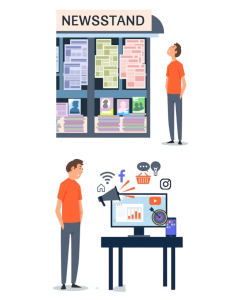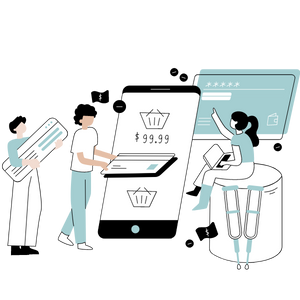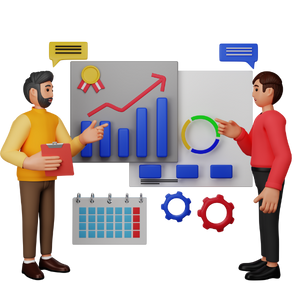to us to know how to promote business on the World Wide Web. We tell
them about different strategies that they can use different stages of their growth.
ContactUs
- +91-810-362-8856
- 106, Silver Arc Plaza, Janjeerwala Square, Indore – 452001, MP, India
-
Mon-Fri: 9am-8pm
Sat: 10am-6pm
Sun: Closed
Follow Us
Traditional healthcare marketing vs digital healthcare marketing
Traditional healthcare marketing and digital healthcare marketing are two different approaches to promoting healthcare products and services. While traditional healthcare marketing has been the standard for many years, digital healthcare marketing is becoming increasingly popular as technology continues to advance. In this blog post, we will explore the differences between traditional and digital healthcare marketing, and the advantages and disadvantages of each approach.
Traditional Healthcare Marketing:
Traditional healthcare marketing involves using traditional media such as print, radio, and television to reach potential customers. This includes newspaper and magazine advertisements, billboards, and TV commercials. The advantage of traditional healthcare marketing is that it has a wide reach and can target a large audience. However, it can also be expensive, and it is difficult to measure the effectiveness of the campaigns.
Digital Healthcare Marketing:
Digital healthcare marketing involves using digital channels such as social media, email, search engines, and websites to reach potential customers. This type of marketing allows for more precise targeting and the ability to track the effectiveness of campaigns in real-time. Digital healthcare marketing is also generally less expensive than traditional healthcare marketing and can be more cost-effective in the long run. However, it may have a more limited reach and may not be as effective in reaching certain demographics, such as older adults who are less likely to use digital channels.
Difference between Traditional healthcare marketing and Digital healthcare marketing
Traditional healthcare marketing and digital healthcare marketing are two different approaches to promoting healthcare services. Here are some of the key differences between these two marketing methods:
 Reach:
Reach:
Traditional healthcare marketing reaches a broader audience through print and broadcast advertisements
Digital healthcare marketing targets a specific audience through online channels.
Cost:
Traditional healthcare marketing can be expensive
Digital healthcare marketing is more cost-effective.
Measurement: 
Traditional healthcare marketing can be difficult to measure the effectiveness,
Digital healthcare marketing can be easily tracked and analyzed through analytics tools.
Interactivity:
Traditional healthcare marketing is mostly one-way communication
Digital healthcare marketing allows for two-way communication and interaction between the healthcare provider and the audience.
Personalization: 
Traditional healthcare marketing often relies on generic messages and advertisements
Digital healthcare marketing allows for personalized messages and targeted campaigns.
Conclusion
While traditional healthcare marketing has its benefits, digital healthcare marketing is quickly becoming the preferred method for many doctors. With the ability to reach a targeted audience and the cost-effectiveness of digital marketing, it’s no wonder why so many healthcare providers are turning to this method to reach potential patients and educate them about their services. Whether you choose traditional or digital marketing, it’s essential to have a well-thought-out strategy in place to reach your target audience and achieve your marketing goals.
